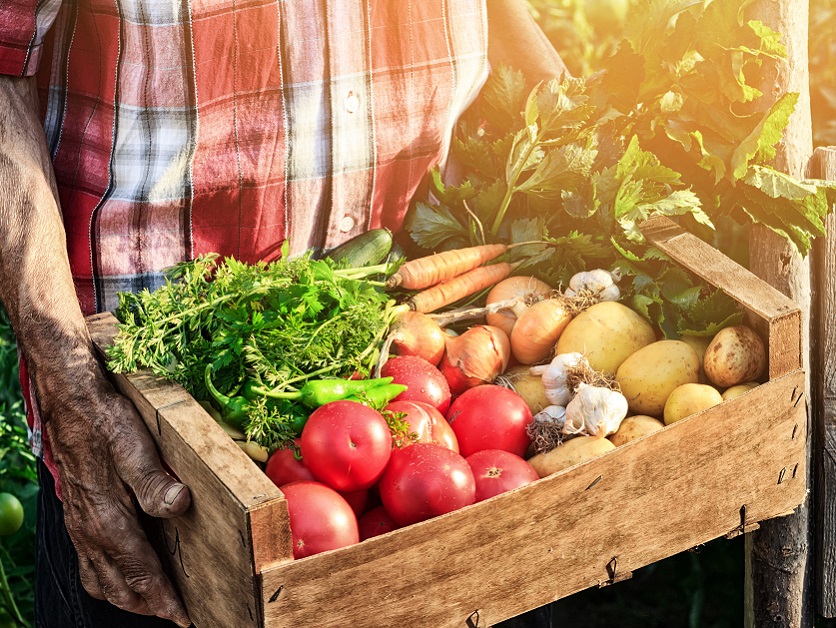Editor's Note: Agri-Pulse and The Chicago Council on Global Affairs are teaming up to host a monthly column to explore how the U.S. agriculture and food sector can maintain its competitive edge and advance food security in an increasingly integrated and dynamic world.
The United States faces many threats to our National Security. These threats include continuing wars with extremist elements such as ISIS and potential wars with rogue state North Korea or regional nuclear power Iran. The heated economic and diplomatic competition with Russia and a surging China could spiral out of control. Concurrently, we face threats to our future security posed by growing civil strife, famine, and refugee and migration challenges which create incubators for extremist and anti-American government factions. Our response cannot be one dimensional but instead must be a nuanced and comprehensive National Security Strategy combining all elements of National Power including a Food Security Strategy.
An American Food Security Strategy is an imperative factor in reducing the multiple threats impacting our National wellbeing. Recent history has shown that reliable food supplies and stable prices produce more stable and secure countries. Conversely, food insecurity, particularly in poorer countries, can lead to instability, unrest, and violence.
Food insecurity drives mass migration around the world from the Middle East, to Africa, to Southeast Asia, destabilizing neighboring populations, generating conflicts, and threatening our own security by disrupting our economic, military, and diplomatic relationships. Food system shocks from extreme food-price volatility can be correlated with protests and riots. Food price related protests toppled governments in Haiti and Madagascar in 2007 and 2008. In 2010 and in 2011, food prices and grievances related to food policy were one of the major drivers of the Arab Spring uprisings. Repeatedly, history has taught us that a strong agricultural sector is an unquestionable requirement for inclusive and sustainable growth, broad-based development progress, and long-term stability.
The impact can be remarkable and far reaching. Rising income, in addition to reducing the opportunities for an upsurge in extremism, leads to changes in diet, producing demand for more diverse and nutritious foods provided, in many cases, from American farmers and ranchers. Emerging markets currently purchase 20 percent of U.S. agriculture exports and that figure is expected to grow as populations boom.
Moving early to ensure stability in strategically significant regions requires long term planning and a disciplined, thoughtful strategy. To combat current threats and work to prevent future ones, our national leadership must employ the entire spectrum of our power including diplomatic, economic, and cultural elements. The best means to prevent future chaos and the resulting instability is positive engagement addressing the causes of instability before it occurs.
This is not rocket science. We know where the instability is most likely to occur. The world population will grow by 2.5 billion people by 2050. Unfortunately, this massive population boom is projected to occur primarily in the most fragile and food insecure countries. This alarming math is not just about total numbers. Projections show that the greatest increase is in the age groups most vulnerable to extremism. There are currently 200 million people in Africa between the ages of 15 and 24, with that number expected to double in the next 30 years. Already, 60% of the unemployed in Africa are young people.
Too often these situations deteriorate into shooting wars requiring the deployment of our military forces. We should be continually mindful that the price we pay for committing military forces is measured in our most precious national resource, the blood of those who serve. For those who live in rural America, this has a disproportionate impact. Fully 40% of those who serve in our military come from the farms, ranches, and non-urban communities that make up only 16% of our population.
Actions taken now to increase agricultural sector jobs can provide economic opportunity and stability for those unemployed youths while helping to feed people. A recent report by the Chicago Council on Global Affairs identifies agriculture development as the core essential for providing greater food security, economic growth, and population well-being.
Our active support for food security, including agriculture development, has helped stabilize key regions over the past 60 years. A robust food security strategy, as a part of our overall security strategy, can mitigate the growth of terrorism, build important relationships, and support continued American economic and agricultural prosperity while materially contributing to our Nation’s and the world’s security.
About the author: Lieutenant General John Castellaw is the Founder and CEO of Farmspace Systems LLC, a provider of precision agricultural aerial services and equipment. He is a highly decorated 36-year veteran of the United States Marine Corp where he participated in and led several humanitarian operations in Africa, Asia and Europe. He is also the former President of the non-profit Crockett Policy Institute where he created the “SOLDIER 2 CIVILIAN” program to help veterans find jobs in precession agriculture. He graduated from the University of Tennessee, Martin (UTM) with a degree in Agriculture. He currently operates his family farm in Tennessee.


